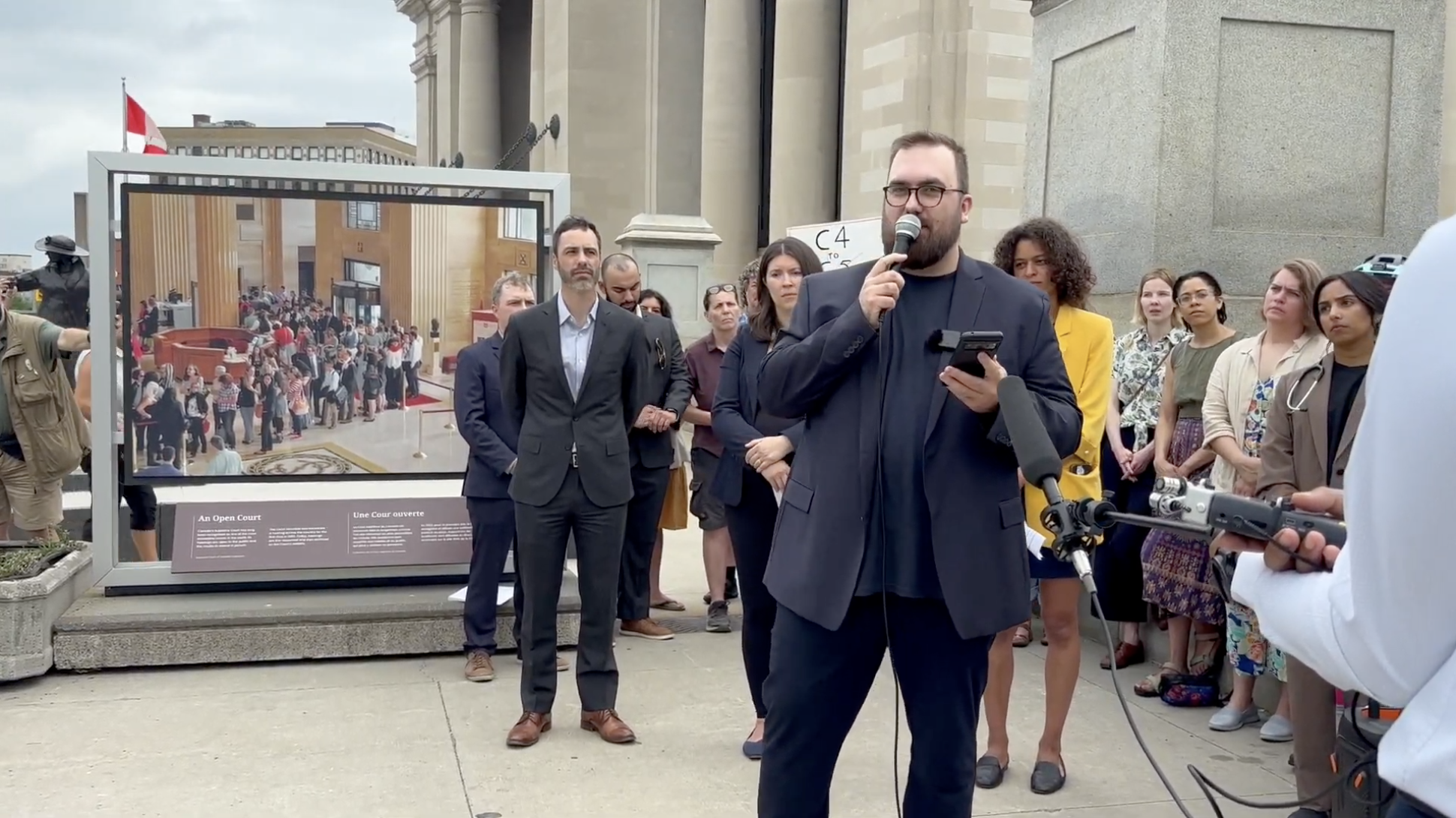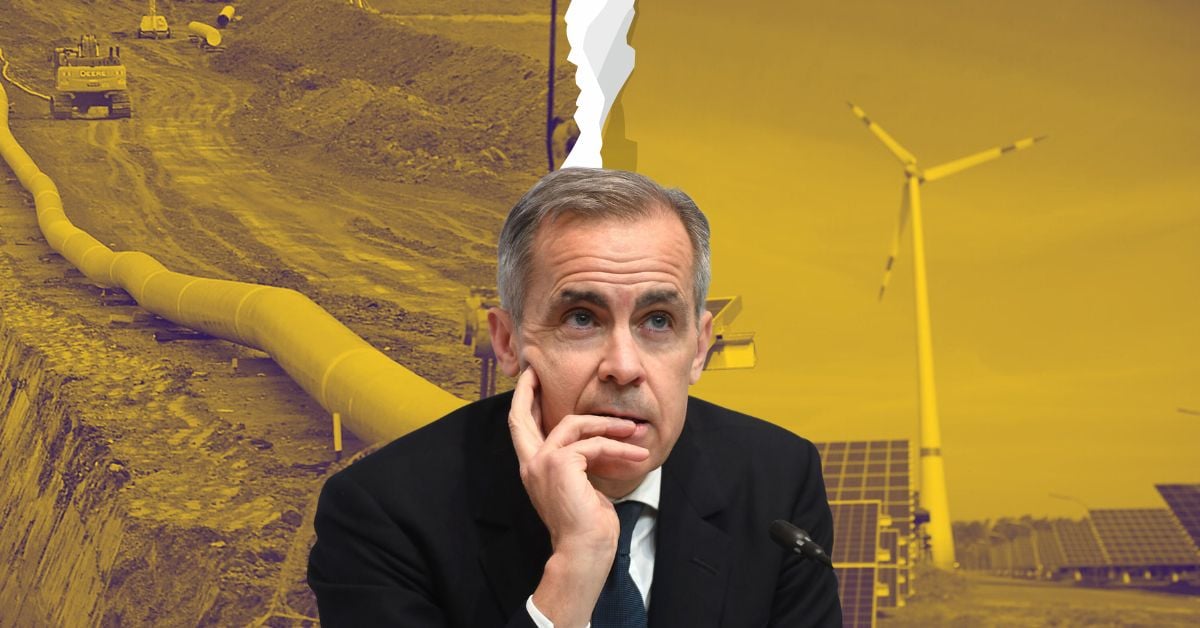9 April 2018 (TORONTO) — The Alberta Securities Commission has agreed to review a complaint from Greenpeace Canada alleging incomplete disclosure of climate-related risks in Kinder Morgan Canada’s (KML) first Annual Report. Under Alberta’s securities law, a failure to fully disclose risks to shareholders can result in fraud charges or class action lawsuits.
“The opposition of the BC government is only one ripple in a sea of troubles facing Kinder Morgan Canada. In its report to shareholders, the company admits that climate change threatens its facilities and that the alliance of Indigenous and environmental climate protectors may block construction of its Trans Mountain Expansion Pipeline,” said Keith Stewart, Senior Energy Strategist with Greenpeace Canada. “Despite these disclosures, we believe the company is still underplaying the risk that a successful transition to a low-carbon economy would pose to their business model.”
Greenpeace Canada presented its arguments in a 13-page briefing note that evaluated the climate risk disclosures in KML’s 2017 annual report against those recommended by the Financial Stability Board’s Task Force on Climate-related Financial Disclosures (TCFD). The complaint was initially filed with the Ontario Securities Commission on March 27, who passed it on to the Alberta Securities Commission on the grounds that the ASC is the principal regulator for KML. The ASC notified Greenpeace Canada at 6 PM ET on Friday, April 6 that they were reviewing the complaint.
Kinder Morgan began disclosing climate-related risks following a 2017 challenge by Greenpeace Canada of the prospectus underlying the company’s $1.75 billion share offering. In its 2017 Annual Report, Kinder Morgan Canada disclosed that:
- Opposition to the Trans Mountain Expansion Pipeline (including opposition motivated by a concern over the related increase in greenhouse gas emissions) could lead to changes in public opinion, government policy, blockades or protests that could result in delays or even the cancellation of the project
- Technology and policy changes (including progress on meeting the Paris Agreement’s decarbonization targets) could result in decreased global demand for hydrocarbons, which would negatively impact KML directly and could negatively impact KML customers so that they are unable to honour their contracts with KML.
- Rising sea levels and extreme weather pose direct physical risks to KML facilities (pipelines and oil terminals) and may result in an increased risk of accidents or construction delays. There is also a risk that the company’s insurance premiums will increase, or that it may not be able to purchase insurance for facilities vulnerable to increasingly extreme weather.
Key elements missing from KML’s climate-related disclosures in its 2017 Annual Report include:
- No climate-related legal risks are disclosed. KML does acknowledge that financial distress of its customers could prevent them from fulfilling their contracts, but does not disclose that oil companies that are confirmed shippers on KML pipelines (and/or their parent companies) are currently subject to lawsuits and fraud investigations related to climate change. According to the TCFD, litigation risk is likely to increase as the value of loss and damage arising from climate change grows.
- No low-carbon scenario are disclosed. The TCFD recommended that all organizations exposed to climate-related risks use scenario analysis to help inform their strategic and financial planning process — and to disclose how resilient their strategies are to a range of plausible climate-related scenarios, including a scenario where we s쳮d in keeping warming well below 2 degree Celsius (as agreed to in the Paris climate agreement). KML acknowledges that it is exposed to a range of climate-related risks but does not provide a coherent assessment of how these risks inform their planning or how resilient their business strategy is to a low-carbon future.
The TCFD recommendations have been supported by major Canadian investors such as the Canada Pension Plan Investment Board, the Ontario Teachers’ Pension Plan, OPTrust, the Caisse de dépôt et placement du Québec and the British Columbia Investment Management Corporation, as well as global investors like BlackRock. Canadian security regulators, including the Alberta Securities Commission, launched a review of corporate disclosure of the risks and financial impacts associated with climate change in March 2017. The results of that review were published last week, and regulators have indicated that they are considering new climate risk disclosure requirements.
“What is Kinder Morgan’s Plan B for the scenario where the world stops global warming?,” said Stewart.”Whether it’s acknowledging the threat posed by the lawsuits alleging oil companies hid what they knew about climate change, or spelling out what management would do if new technology and climate policies reduce the demand for oil, Kinder Morgan needs to come clean with its investors and the public.”
– 30 –
Link:
Greenpeace Canada’s review of Kinder Morgan Canada’s climate risk disclosure is available here.
For more information:
Keith Stewart, Senior Energy Strategist, Greenpeace Canada, 416-659-0294.


